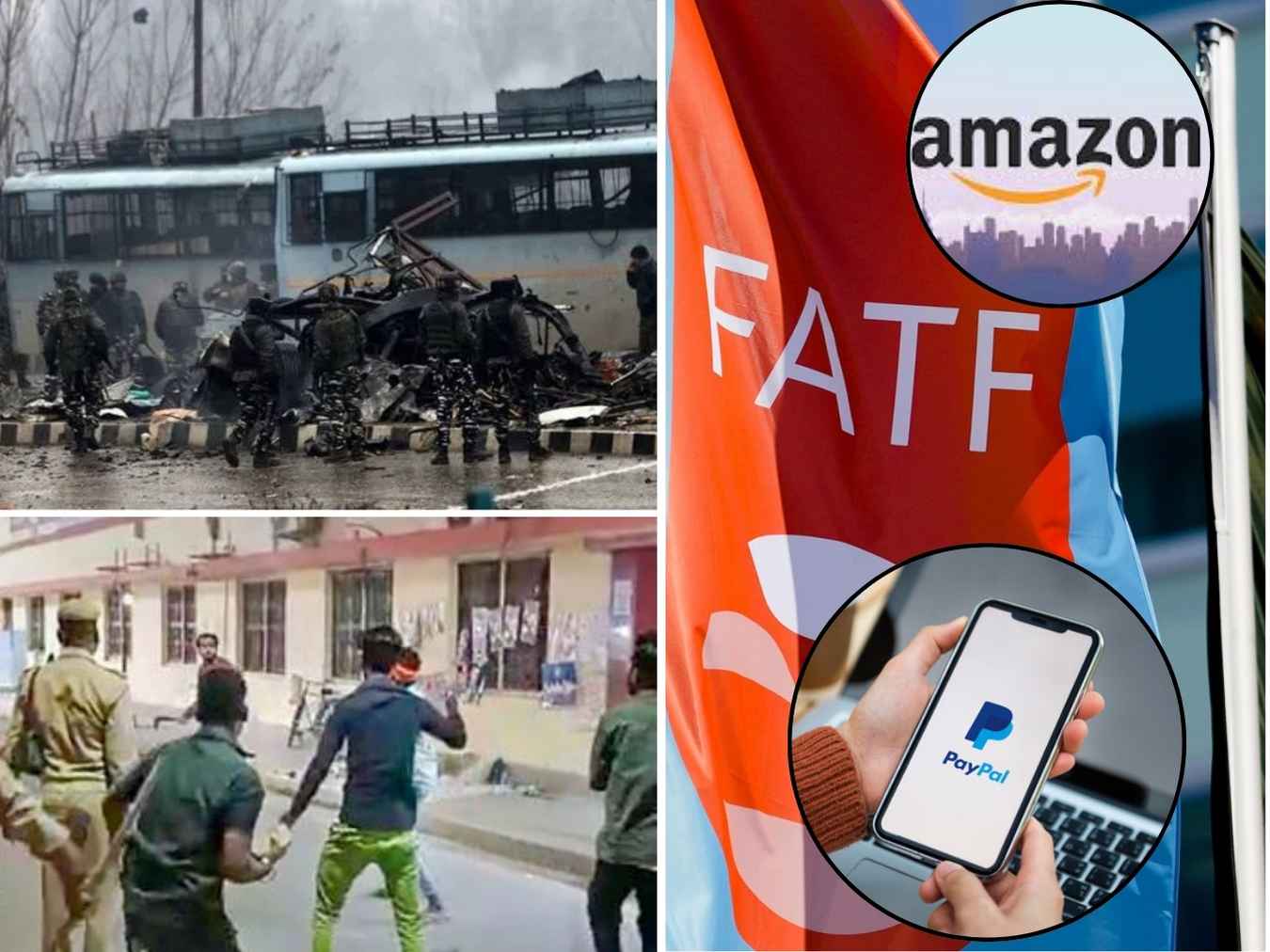The Financial Action Task Force (FATF) in its latest report has named e-commerce platform Amazon and online payment services like PayPal, raising concerns over their growing misuse by terrorist organisations. The report cited the 2019 Pulwama attack and the 2022 Gorakhnath Temple incident in Gorakhpur as it said explosive materials were sourced from Amazon, and PayPal and VPNs were used to fund ISIS in the two cases.
According to the report released on Tuesday, explosive materials, including aluminium powder used in the Pulwama suicide bombing that killed 40 CRPF personnel, were procured via Amazon. The report also details how in the Gorakhpur incident, the attacker, influenced by ISIL ideology, used PayPal and VPN services to transfer over Rs 6.69 lakh internationally to support terrorist activities.
The FATF did not name any specific country but mentioned that several national governments were suspected of providing direct and indirect support to terrorist outfits through financial aid, logistics, training, and smuggling routes.
Digital Tools and Decentralised Terror Cells Under Scanner
The report titled ‘Comprehensive Update on Terrorist Financing Risks’ highlights how social media, crowdfunding, messaging apps, and online payment gateways are increasingly being used for terror financing. FATF warned that decentralised terror networks, self-financed regional hubs, and local criminal networks are making it more difficult to track funds.
It cited how groups like Al-Qaeda have evolved from using a central command to regional units such as Al-Qaeda in the Indian Subcontinent (AQIS) for financial operations. Similarly, storage of gold or jewellery has been identified as another tactic, with Indian intelligence reporting that ISIL and Al-Qaeda followers in India used these methods to store and conceal funds.
How the Gorakhnath Attacker Used PayPal and VPNs
In the April 2022 Gorakhnath Temple attack, investigations revealed that the accused had transferred Rs 6,69,841 (~$7,736) using PayPal, making 44 international third-party transactions while masking his identity with VPN services. He even paid for the VPN using his bank account.
Authorities also found he had received foreign remittances worth Rs 10,323 (~$188) and had sent money to known ISIL operatives abroad. After detecting suspicious activity, PayPal suspended the user’s account, halting further fund transfers.
Pulwama: Amazon Used to Source Explosives
In the 2019 Pulwama terror attack, the FATF stated that aluminium powder, a crucial ingredient in the IED, was purchased through Amazon’s e-commerce platform. The attack was executed by Jaish-e-Mohammed, a Pakistan-based terror outfit. Investigations confirmed cross-border smuggling of explosives, and India later responded with Operation Sindoor, targeting nine terror camps in Pakistan-occupied Kashmir, eliminating about 100 terrorists.
State Sponsorship, Smuggling Tactics Also Highlighted
The report also discussed how some terrorist groups received state-level financial backing and employed trade-based financing methods. FATF mentioned cases where oil was sold in intermediary countries, converted into gold, and later into cash, moving through smuggling networks under possible state support.







